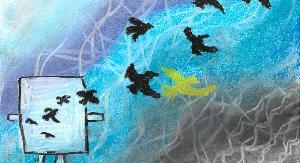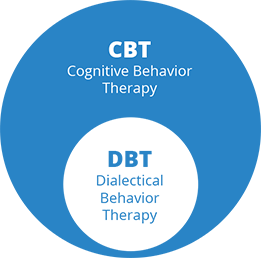Kitchen-table discussions about suicide and psychiatric illnesses can be scary and complex, but having difficult conversations is an important part of destigmatizing the issue. Talk openly about your concerns about suicide and the impact of suicide deaths on your own feelings and the community, even with children and adolescents who likely know about the suicides…
Read More >>I Am Worthy of Love and Happiness “It was feeling loved and supported by others, after having felt really isolated for a really long time, that got my brain in that space where I thought, ‘Maybe I am worthy of love and happiness.’”
Read More >>Bipolar disorder and borderline personality disorder are two mental illnesses that can cause significant disability and disruption in someone’s life. Despite being commonly grouped together or even used interchangeably in movies, TV, and other pop culture references, they are two separate and distinct illnesses that have different diagnostic criteria and require different treatments. Find out more about how…
Read More >>You may think that once you finish high school, you’re finished growing up. Physically, you’re probably as tall as you will ever get. You may have reached your final shoe size. Whether you head off to college or out to make your own way in the world, you will likely gain a great deal of…
Read More >>What is major depression? Major depressive disorder, also called major depression or unipolar depression, is a serious mood disorder with severe symptoms that can interfere with a person’s ability to handle daily activities, relationships, and work or school responsibilities. Major depression affects about 6.7 percent of U.S. adults in a given year. To be diagnosed…
Read More >>Individuals who cut themselves or engage in other self-injurious behaviors often are using this unhealthy coping strategy to deal with emotional pain or confusion that they do not know how to process in any other way. This type of behavior is associated with several diagnoses including anxiety disorders and personality disorders, and patients often have a history of…
Read More >>Everyone experiences job-related stress. Whether it’s communicating with multiple people, juggling responsibilities or adhering to deadlines, workplace stressors are common. Short-term stressful moments are typical, but experiencing constant or long-term stress can affect your physical and emotional health. What begins as job-related stress can extend to other situations and impact your life outside of work…
Read More >>Parenting can be hard at the best of times. When you’re struggling with depression, you might feel like you can’t provide the care and support your children need. There are many things you can do to make caring for your children a little easier while you treat your own depression. On days when you feel like…
Read More >>Psychotherapy is one of the best treatment methods available for a number of mental illnesses. One of the most common types of therapy is called Cognitive Behavioral Therapy (CBT). Also called talk therapy, CBT focuses on talking about your problems to help you frame your thoughts differently. If you feel like negative thoughts are always in…
Read More >>People rarely view psychiatric conditions in a positive light. In the U.S. and other countries worldwide, mental illness carries a stigma. Social and perceived stigmas impact people diagnosed with a psychiatric condition in significant ways. In the U.S., fewer than half of adults with a psychiatric disorder sought out health services in the past year, which help…
Read More >>








